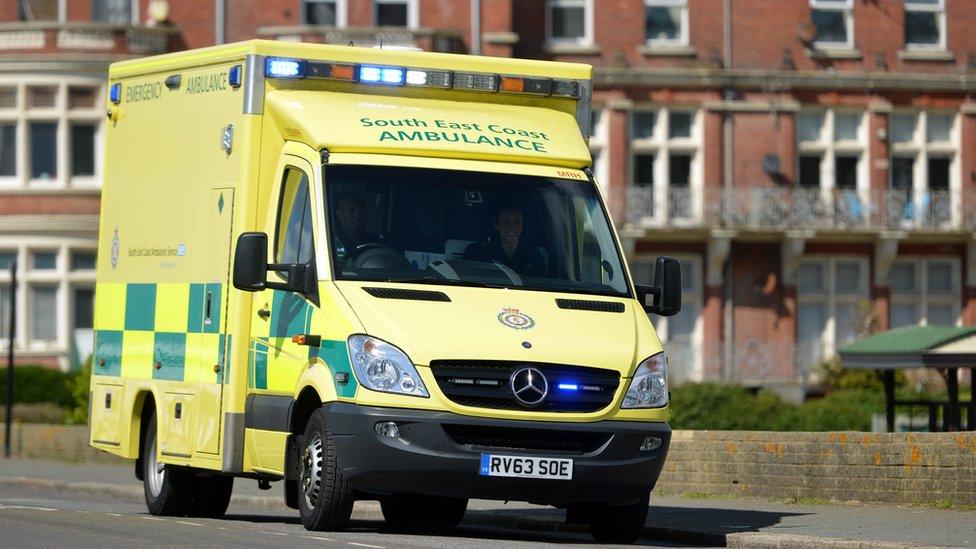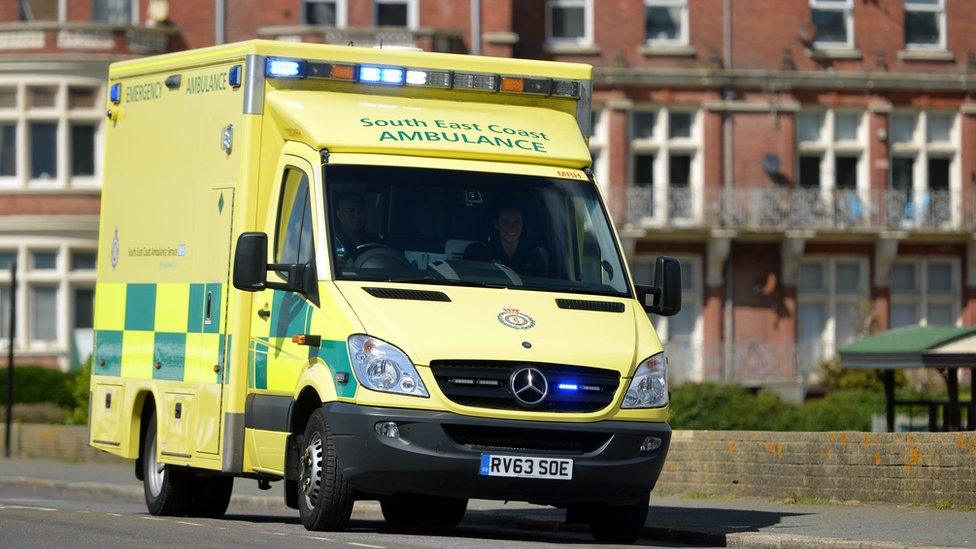Ambulance chairman in NHS 111 calls row 'told to go'
- Published

Secamb gave itself an extra 10 minutes to deal with some potentially life-threatening calls
The chairman of the scandal-hit South East Coast Ambulance Service (Secamb), Tony Thorne, has been told to leave his post, the BBC understands.
The trust is being investigated after it dodged targets in order to take extra time to assess some patients.
Health regulator Monitor has reportedly told the chairman to go, the BBC has been told by multiple sources within the NHS.
Monitor has denied this is the case and the trust declined to comment.
Mr Thorne also declined to comment to the BBC as he left a public meeting in Eastbourne.
The watchdog said in a statement: "As part of our ongoing regulatory action, we asked South East Coast Ambulance NHS Foundation Trust to commission a detailed review of the Red 3 project, including the way decisions were made about it.
"This review is yet to be published. We will provide an update on our regulatory response in due course."
A Secamb spokesman said: "It is not appropriate for the trust to comment on the position of any individuals at this stage."
Meanwhile the position of the chief executive Paul Sutton remains unclear.
Last October it emerged Secamb, which covers Kent, Surrey, Sussex and North East Hampshire, delayed sending help for certain 111 calls, transferring them instead to the 999 system as part of a pilot project.
It did this to re-assess what type of advice or treatment patients needed and whether an ambulance was really required.
The trust defended the project but acknowledged the "serious findings" of a report into the practice.

How call handling was changed
Secamb provides NHS 111 services across the region and responds to 999 calls.
Some 111 calls were transferred to the 999 system to give Secamb more time for more urgent calls.
The calls affected were in the second most serious category - Category A Red 2 - which covers conditions like strokes or fits but which are less critical than where people are non responsive.
Under NHS rules, calls designated as life-threatening are supposed to receive an ambulance response within eight minutes.
The trust allowed itself an extra 10 minutes to deal with some calls by "re-triaging" patients in the 999 system.

At the time, health regulator Monitor said the trust had not fully considered patient safety.
It said the project was "poorly handled" and there were "reasonable grounds to suspect that the trust is in breach of its licence."
It added a condition to Secamb's licence so that if insufficient progress was made the leadership team could be changed.
Speaking on Tuesday, Sussex Labour MP Peter Kyle said: "I called yesterday for the regulators to step in and get a grip of the governance of Secamb. It looks today that it has.
"If the chair has been removed then that is not surprising to me. There was a problem at the very top of the organisation and that problem was about governance and the way that the organisation was scrutinised, challenged and supported."
- Published5 November 2015

- Published30 October 2015

- Published4 November 2015

- Published3 November 2015
